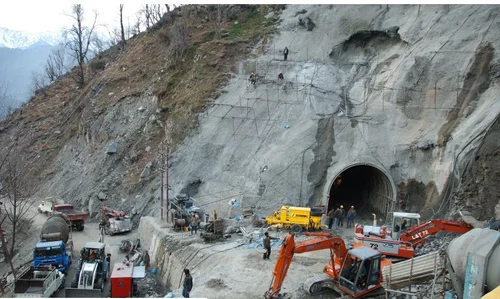India’s infrastructure landscape is set for a dramatic transformation with the Ministry of Road Transport and Highways (MoRTH) announcing an ambitious plan to build 74 new tunnels. Stretching over 273 km, this ₹1 lakh crore initiative aims to significantly bolster the country’s highway network, promising enhanced connectivity and improved road safety.
The grand project is part of MoRTH’s broader strategy to modernise India’s road infrastructure. The focus is not merely on quantity but also on quality and innovation. According to the latest update, the government has already completed 35 tunnels, covering 49 km, at an investment of ₹15,000 crore. Currently, 69 more tunnels are under construction, amounting to 134 km and costing around ₹40,000 crore. One of the project’s key highlights is the emphasis on incorporating advanced technology and cost-effective solutions. The roads minister has advocated for leveraging global best practices to tackle the diverse challenges posed by India’s varied terrain. In regions like the Himalayas, where geographical challenges are more severe, the project will explore innovative techniques such as precast technology and push-back methods to mitigate issues like landslides.
The plan also introduces a strategic shift towards international collaboration. By proposing a 51% stake for foreign partners in joint ventures, the government aims to attract technically proficient players and ensure high-quality execution. This approach is expected to not only enhance project efficiency but also drive up standards across the board. An integral part of the strategy is the emphasis on regular performance audits. The roads minister has underscored that performance audits are crucial for ensuring that projects adhere to their intended objectives and maintain high standards throughout their lifecycle. This rigorous oversight is designed to optimise the use of technology, ensure quality assurance, and make effective use of resources.
For local communities, the impact of this mega tunnel project will be significant. Enhanced connectivity will improve access to remote areas, boost economic activities, and create job opportunities. As the project progresses, it promises to deliver tangible benefits, including safer and more efficient travel across the country. This initiative marks a significant step forward in India’s infrastructure development, aiming to set new benchmarks in highway construction and management. As the country embarks on this transformative journey, the focus on innovation and quality will be key to its success.


